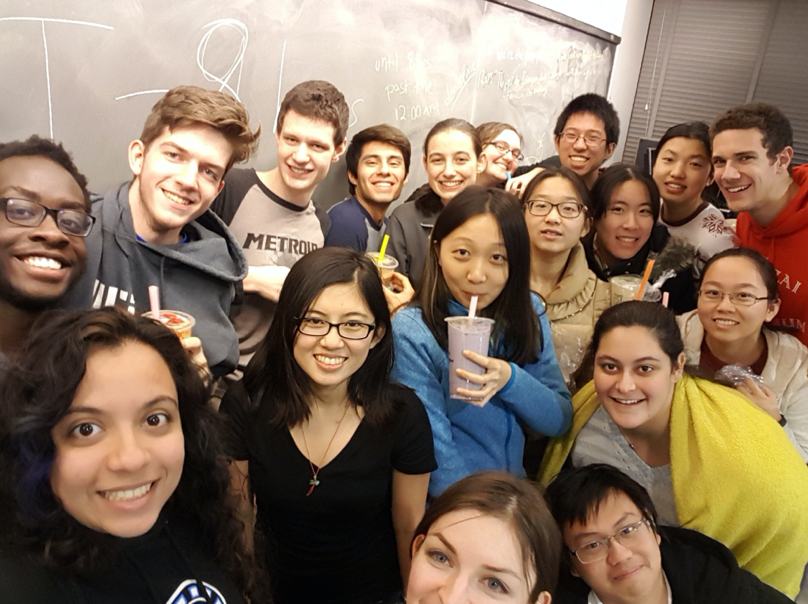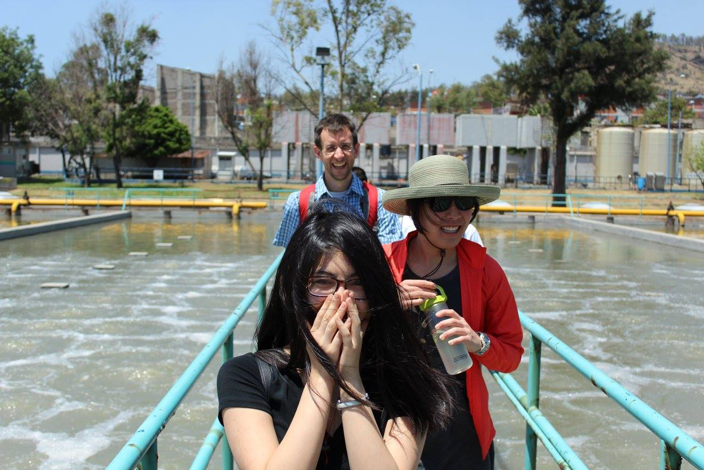12 Jun 2020 A Heartfelt Review of My Time in Terrascope
I’m Janice, a graduated senior who has been a part of the Terrascope community for the last four years. Terrascope is a First-Year Learning Program where students have the option of taking a selection of classes: Solving Complex Problems, Terrascope Radio, and Design for Complex Environmental Issues. I took Solving Complex Problems and Terrascope Radio in my first year and was an undergraduate teaching fellow for Solving Complex Problems in my sophomore year.
My best description of Solving Complex Problems is that it’s a semester-long research project run by a large group of first years. The research topic is different every year, but it’s always focused on a big environmental problem. The group dynamic of the students also changes, as each batch of students is a new set of personalities, interests, and backgrounds. The teaching staff takes a hands-off approach in guiding the class, which puts students in the rare position of deciding their fate in terms of meeting deadlines, defining the project’s goals, and structuring the group. In my year, there were many conflicts over the direction and priorities of our project. While the class was stressful, I remember it fondly as a time when I learned how to navigate complicated group dynamics, how to break down a large project into workable pieces, and what NOT to do in a group project (e.g. procrastination and not setting wiggle room in the schedule for disasters).

In Terrascope Radio, the first half of the semester is dedicated to listening to radio pieces to develop our taste and critical listening abilities. In the second half, Terrascope travels to a location relevant to the year’s topic, and the radio class takes that opportunity to gather recordings for a radio piece that we make ourselves. The class was a very different experience from Solving Complex Problems, as it had fewer students and involved more creative work. Additionally, because Terrascope Radio happens in the semester after Solving Complex Problems, the class was a chance to apply our hard-earned lessons about teamwork. Of course, there were disagreements, time crunches, and difficulties, but I can say that we truly learned from the previous semester and was proud of the radio piece we produced.

While I’ve talked about the classes in Terrascope, there is so much more to the program that has kept me involved even after the classes ended. Terrascope has a strong community with an on-campus lounge, weekly lunches, and social events that are open to all current and past students. The lounge is my go-to spot for hanging out between classes, having lunch, or finding someone to chat with. Weekly lunches are an opportunity to see people from all years of Terrascope while listening to guest speakers. And as for social events, there were times when we went apple picking, drove to beaches, or went to restaurants together. I never went home for Thanksgiving in my time at MIT, so I cooked and baked with Terrascope every year. Even for leaving MIT, Terrascope has helped me immensely. The community has shaped my academics and career because of the availability and diversity of like-minded upperclassmen, peers, speakers, and mentors who have told me about interesting classes, companies, and career paths to explore. In most interviews and resumes, I talk about navigating Terrascope’s difficult team dynamics, which has always been interesting for recruiters to hear. And above all, some of my closest, lifelong friends and sources for advice are people I met through Terrascope.
What more can I say?


